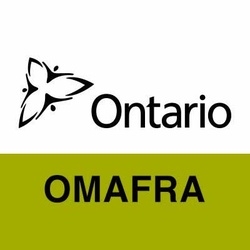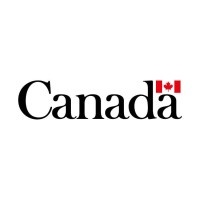
Toronto Commercial Space Rehabilitation Grant Program
At a glance
- Maximum amount : 24,000 $
- Minimum amount : 5,000 $
- Up to 50% of project cost
- Receipt of requests is now closed
- Retail trade
- Toronto
- For-profit business
- Sole proprietorship
- All revenue ranges
- All organization sizes
- Canadians
Overview
The Commercial Space Rehabilitation Grant Program offers matching funding of up to $24,000 to commercial business operators and owners in Toronto for interior renovations aimed at revitalizing vacant storefronts and supporting small business recovery. Eligible activities include structural upgrades, electrical work, and accessibility improvements that meet AODA standards.
Activities funded
The eligible projects for this grant focus on renovating and improving the interior features of commercial properties, especially those at risk of vacancy. These activities aim to enhance structural integrity, functionality, and accessibility within the space.
- Structural upgrades including necessary construction modifications.
- Electrical work and the installation or updating of interior lighting systems.
- Updates or installations for heating, ventilation, and air conditioning (HVAC) systems.
- Plumbing work and the installation of new plumbing fixtures.
- Interior painting and application of new flooring, ceiling, or wall finishes.
- Installation of permanently affixed counters and merchandise displays.
- Implementation of accessibility improvements, such as interior ramps or accessible washrooms, to meet AODA standards.
- Coverage of design fees related to architectural, engineering, and specialized design services.
Eligibility
Eligibility for the Commercial Space Rehabilitation Grant Program is determined by specific criteria related to the property and its location.
- The property must be either vacant or at risk of becoming vacant.
- The property must have previously received support under the Canada Emergency Rent Subsidy (CERS) Program or be located in corridors impacted by Major Transit Expansion-related construction.
- The property must be within the city of Toronto and used for commercial purposes at street level or have direct street access from another floor.
- The application must include written permission from the property owner, if the applicant is a tenant.
- At least three eligible improvements must be proposed for the property/unit.
Who is eligible?
The Commercial Space Rehabilitation Grant Program is available to owners and tenants of commercial, street-level properties in Toronto that meet specific conditions. Applicants must be either owners or tenants of vacant or soon-to-be vacant properties, or those that have previously received support under the Canada Emergency Rent Subsidy (CERS) Program. Additionally, properties situated in corridors affected by major transit construction projects, such as the Ontario Line or Eglinton Crosstown, are eligible. Properties must have commercial usage at the street level or direct street access from another floor, and tenants must have the property owner's written consent to make renovations. Ineligible parties include places of worship, institutional buildings, not-for-profit commercial buildings, and residential buildings. Projects must include a minimum of three eligible renovations, and certain types of maintenance and moveable items are not eligible for funding.
Who is not eligible
This grant program has specific restrictions on eligibility, excluding certain types of buildings and projects. These restrictions are in place to channel funds effectively towards eligible commercial properties seeking rehabilitation.
- Places of worship.
- Institutional buildings.
- Not-for-profit commercial buildings.
- Residential buildings.
Eligible expenses
The grant supports various interior renovation activities for commercial spaces to help local businesses thrive and improve accessibility. The eligible projects focus on upgrades that enhance structural integrity, aesthetic appeal, and accessibility of the properties.
- Structural upgrades to the commercial property.
- Electrical work and improvements in interior lighting.
- Enhancement of HVAC systems, including heating, ventilation, and air conditioning.
- Plumbing updates and new plumbing fixtures.
- Interior painting projects.
- Installation of new flooring, ceiling, and wall finishes.
- Adding permanently affixed counters and merchandise displays.
- Improving accessibility features to meet AODA standards, such as ramps or accessible restrooms.
- Covering design fees for architectural and engineering services up to a certain limit.
Eligible geographic areas
This grant is available to companies operating within specified areas in Toronto as per eligibility. These locations are significant due to their economic impact and development needs.
- Commercial properties located within the city of Toronto.
- Areas impacted by Major Transit Expansion-related construction such as the Ontario Line and Eglinton Crosstown.
How to apply
Prepare to Stay Informed
Contact for Questions
- Email Michael Saunders at for any questions regarding the program.
- Call Michael Saunders at 416-392-1005 for further information.
Additional information
The Commercial Space Rehabilitation Grant Program in Toronto offers funding to support commercial business operators and owners of vacant storefronts in making interior renovations.
- The grant program is funded by the Government of Canada through the Federal Economic Development Agency for Southern Ontario.
- Applications are currently closed, but interested parties can subscribe to the Business TO newsletter for updates on future rounds of funding.
- Tenants must have written permission from the property owner to make improvements and apply for funding.
Contacts
Frequently Asked Questions about the Toronto Commercial Space Rehabilitation Grant Program Program
What is the Toronto Commercial Space Rehabilitation Grant Program?
How much funding can be received?
Who is eligible for the Toronto Commercial Space Rehabilitation Grant Program program?
What expenses are eligible under Toronto Commercial Space Rehabilitation Grant Program?
Who can I contact for more information about the Toronto Commercial Space Rehabilitation Grant Program?
Where is the Toronto Commercial Space Rehabilitation Grant Program available?
Is the Toronto Commercial Space Rehabilitation Grant Program a grant, loan, or tax credit?
More programs like this

Starter Company Plus
Government of Ontario
Digital Main Street – Digital Transformation Grant Program
Digital Main Street
Rural Economic Development program — Economic Diversification and Competitiveness Stream
Government of Ontario
Retail Modernization Project Grant (RMPG)
Ontario Centre of Innovation (OCI)
Regional Tariff Response Initiative (RTRI) — Southern Ontario
Federal Economic Development Agency for Southern Ontario (FedDev)
The Foodpreneur Scale-Up Program
Foodpreneur Advantage
Enabling Accessibility Fund — Small projects
Employment and Social Development Canada (ESDC)
Commercial CoolSaver Program
Independent Electricity System Operator (IESO)
eCommerce North Tech Accelerator
Elevate Talent